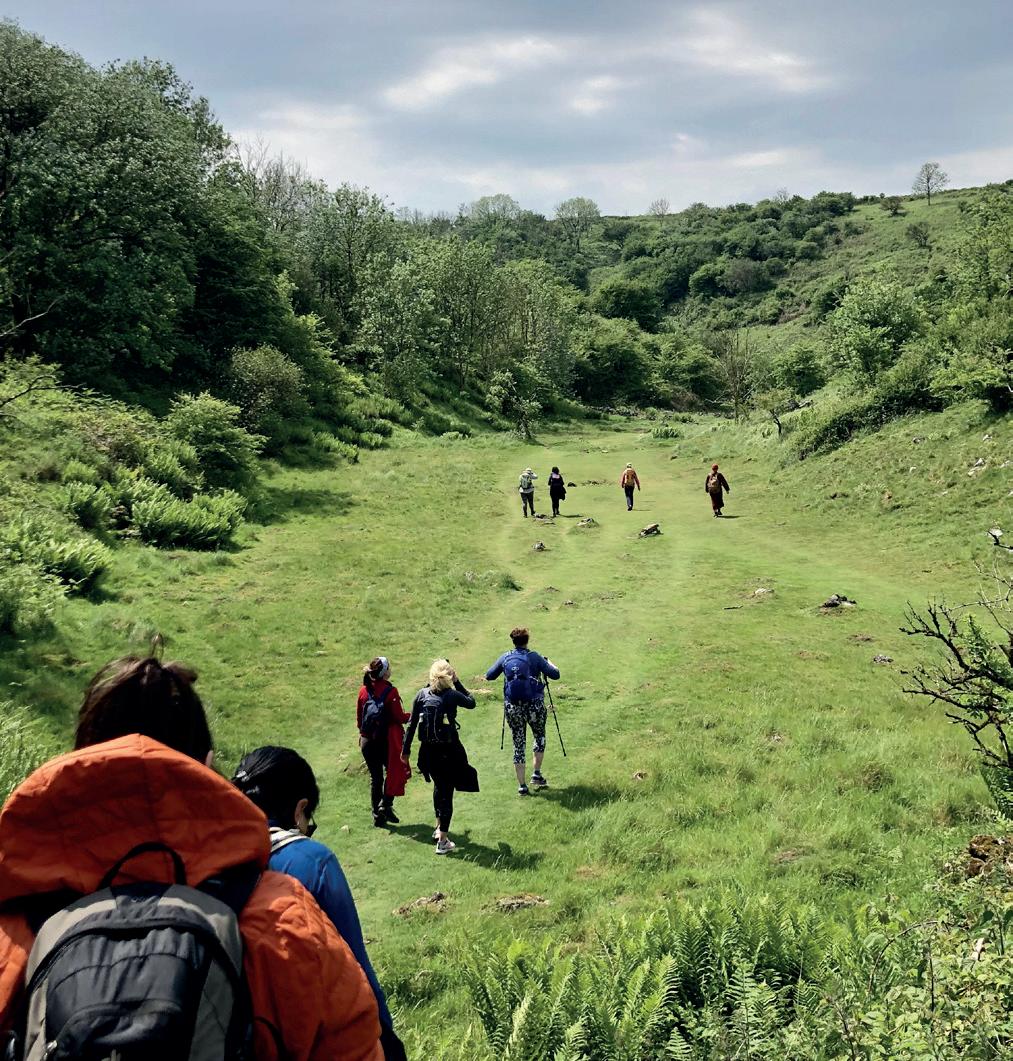
3 minute read
MIND OVER MOUNTAINS
Nature itself is the best physician, as Hippocrates said. Ed Blomfield speaks to the co-founder of a charity applying this age old wisdom to the UK’s mental health crisis.
Ellis Brigham ambassador Alex Staniforth understands better than most the transformative power of nature. As a child he battled epilepsy and a stammer, as well as bullying at school that led to crippling anxiety and an eating disorder. Yet one hillwalk in the Lake District at 14-years-old changed everything. “That was the spark,” he says. “That was where the dream came from.”
Getting outdoors, being present and “having a goal” as Alex puts it, helped encourage his younger self out of his shell. “We’ll get out of bed in the morning when there’s a deadline,” he explains, “when you’ve committed to yourself and the world that you’re going to do something.”
The mountains offer endless such challenges, and Alex’s newfound passion led him on a remarkable journey that has included two attempts on Everest, aged just 18 and 19. Both trips were cut short amid wider disasters; the first when an avalanche killed 16 Sherpas and closed down the mountain, the second when Alex was caught in the infamous avalanche that swept through basecamp in 2015 following an earthquake. Surviving these experiences led him to question his purpose and ultimately resolve to make a difference closer to home. Embarking on a fundraising challenge called Climb the UK, Alex cycled, walked, ran and kayaked approximately 5,000 miles around the UK in just 72 days. And it was during this trip that he made another profound realisation: it had taken him longer to get an appointment for his problems as a young man than to complete this epic trip. “I always felt fortunate because I had the outdoors,” he says. “It’s what I call my ‘natural health service’. And by the time I got help, I’d already kind of got myself back on my feet using the outdoors.
Fuelled by this insight, Alex and his friend Chris Spray founded Mind Over Mountains, a charity that provides guided walks and retreats as a means of healing and support. The organisation hosts multi-night adventures to beauty spots throughout England and Wales, as well as day walks focused on the North, taking people from urban areas out into the countryside. Participants are accompanied by outdoor experts and mental health professionals, including neuro-linguistic programming coaches and mindfulness counsellors, ensuring a holistic approach to wellness. “Chris and I were blown away by the impact that combination had,” recalls Alex of the first MOM event. “It was so powerful, getting people away in a hostel with no phone signal, no Wi-Fi and just properly connecting.”

Mind Over Mountains welcomes individuals from all walks of life and their staff are experienced in dealing with a variety of mental health issues, such as grief, domestic abuse and post-traumatic stress disorder (PTSD). They work regularly with veterans and the emergency services, and offer bursaries to those in need. Increasingly, people are signposted to them by the NHS.
So what is it about the outdoors that makes it so conducive to mental well-being? According to Alex, “It’s the ability to strip away everything – the worries, the doubts, the fears – and just have that time in the moment.” Depression, he explains, is often focused on the past, whereas anxiety is the future. By contrast, walking encourages you to stay present and fosters a sense of calm. “You’re having to slow down to the pace; you’re having to watch your feet.” Exercising in nature also provides a unique combination of endorphins, sunlight and green space that’s almost magic in its ability to reduce stress.

Talking, too, is made easier outside of a formal setting, and engaging in conversations during a walk is an essential component of Mind Over Mountains’ mental health support. “Otherwise, we internalise our problems, we only see one perspective on them,” he explains. “Talking may not necessarily solve the situation, but just by [sharing our problems] we’re dropping some of that weight. It protects our health to know that we’re not alone.”
Although MOM has only been registered as a charity since 2020, the pandemic accelerated Britain’s mental health crisis and demand for its services has grown steadily ever since. With eight trustees and over 50 freelance staff now offering their time, Alex hopes to see it become the leading provider of nature-based health interventions in the UK. “Just to reach everyone who needs us and be that natural health service. That’s the vision. It’s a pretty big mission, but together I think we can really do it.”
For more information visit mindovermountains.org.uk










